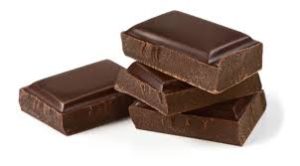 Today a study was published finding health benefits to frequent (daily!) consumption of cocoa - improved walking in older persons with peripheral artery disease (PAD). Another reason to drink cocoa and eat dark chocolate!
Today a study was published finding health benefits to frequent (daily!) consumption of cocoa - improved walking in older persons with peripheral artery disease (PAD). Another reason to drink cocoa and eat dark chocolate!
The study, conducted in Chicago, Illinois, randomly assigned persons, over the age of 60 years with PAD, to different groups. Those who drank a cocoa beverage for 6 months (3 times a day) were able to walk further in a 6 minute walk at the 6 month follow-up (when compared to the placebo/no cocoa group).
The researchers also found that the cocoa significantly improved a number of measures of the calf muscle (e.g. capillary density, calf muscle perfusion), which suggested that there is a durable benefit on the calf muscles from the cocoa beverage. In other words - it's not just a quick sugar-cocoa high that boosted their walking.
On the other hand, the placebo (no cocoa) group deteriorated in how far they could walk over the 6 months, which is consistent with peripheral artery disease. Yes, it typically gets worse over time.
PAD (also called peripheral arterial disease) is a common circulatory problem, due to atherosclerosis, in which there is reduced blood flow to the limbs due to narrowed arteries.Typically the legs don't receive enough blood flow and there is pain when walking (which goes away after resting a bit). Treatments include lifestyle changes (e.g. diet, exercise) and medicines.
What is so beneficial about cocoa? Both regular dark chocolate and cocoa contain flavanols, including epicatechin, which have therapeutic properties and may improve walking in people with PAD. Evidence from other studies of people with and without PAD suggests that cocoa may increase "limb perfusion" and "improve skeletal muscle mitochondrial activity and muscle regeneration".
Can you imagine a prescription for dark chocolate and cocoa on a daily basis? Fantastic! From Medical Xpress: Cocoa could bring sweet relief to walking pain for people with peripheral artery disease ...continue reading "Enjoy Some Cocoa Or Dark Chocolate Daily"
